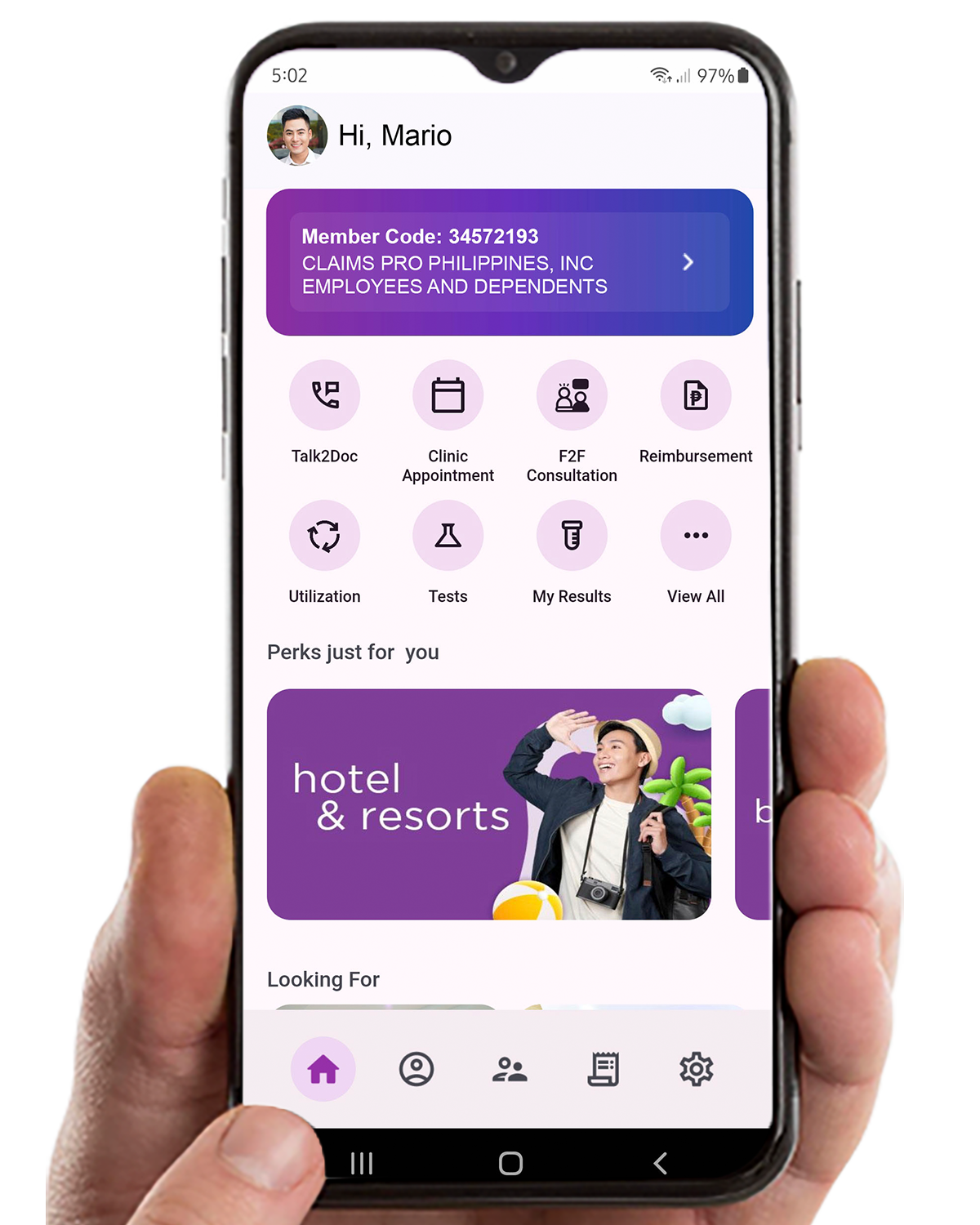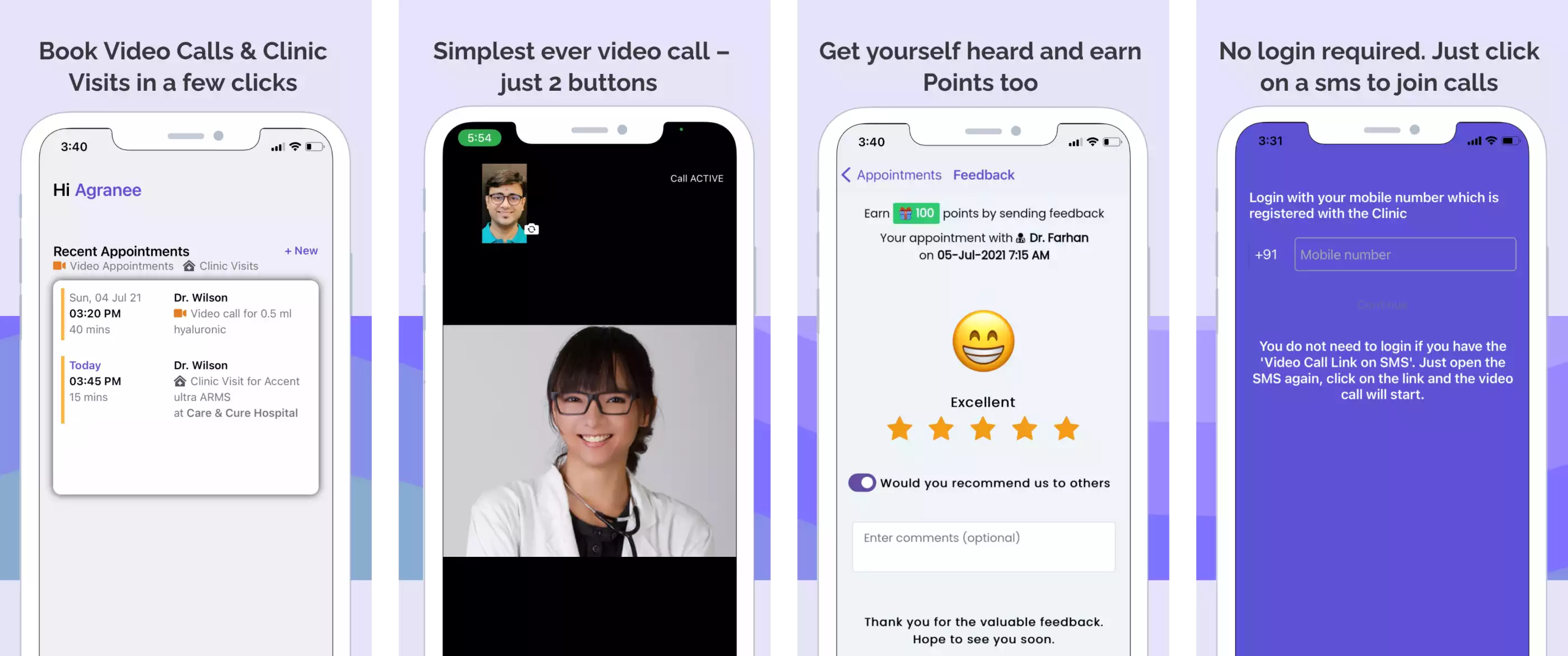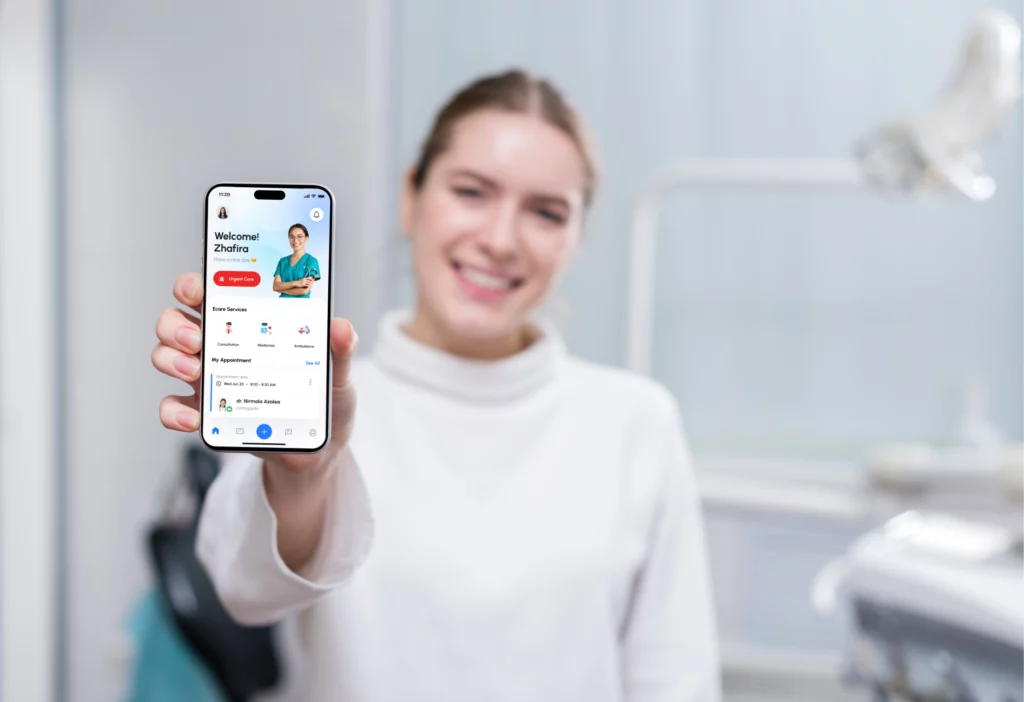The Future of Healthcare: Why Clinics Need a Mobile App Today
As the health care landscape proceeds to evolve, clinics face installing pressure to adapt to patient expectations for higher benefit and ease of access. The assimilation of mobile applications can offer as a crucial approach for boosting individual engagement and streamlining operations.
Transforming Person Expectations
As the landscape of health care advances, patient expectations are undergoing a considerable makeover. Today's clients are progressively looking for convenience, availability, and customized treatment.
In addition, clients are becoming a lot more informed and empowered, commonly looking into therapies and conditions on the internet before examinations. This increased understanding is paired with a need for openness in medical care processes, including expense price quotes and therapy options. Therefore, suppliers are obliged to adjust by embracing electronic tools that improve the client experience.
The assumption for reliable and timely communication has actually never been greater, with lots of clients thinking about responsiveness an important component of high quality treatment. mobile app for clinics. In this advancing landscape, healthcare companies need to acknowledge these altering assumptions and utilize mobile applications to foster a more patient-centric method, making certain that they not just meet yet surpass the criteria set by today's educated consumers
Enhancing Person Involvement

Mobile applications help with communication in between clients and doctor, making it possible for real-time consultation scheduling, tips for medicine adherence, and direct messaging features. These functionalities not only boost convenience but likewise construct a sense of liability amongst patients. Mobile applications can offer academic content customized to specific demands, aiding individuals better understand their problems and therapy choices.
The assimilation of gamification components within healthcare applications can additionally inspire clients to involve in healthy and balanced actions, enhancing favorable way of living adjustments. Inevitably, enhancing client involvement via mobile applications leads to boosted wellness outcomes, better individual fulfillment, and a more collaborative health care experience.
Streamlining Center Operations
Enhancing clinic operations is essential for improving workflow effectiveness and maximizing client treatment. The implementation of mobile applications can substantially minimize management burdens, enabling healthcare carriers to focus a lot more on person interactions. By automating visit organizing, patient check-ins, and billing procedures, facilities can minimize wait times and improve general functional performance.
Mobile apps also assist in real-time accessibility to person documents, allowing health care experts to make informed decisions swiftly. This immediacy not just improves the high quality of treatment yet additionally reduces the possibility of errors related to misplaced or dated info. Leveraging mobile technology supports a more organized approach to managing person follow-ups and therapy strategies, making sure that no important steps are neglected.
Additionally, mobile apps can simplify supply administration by offering centers with tools to monitor medicines and supplies successfully. This enables timely replenishment and helps stay clear of disruptions in client care as a result of stock shortages. By incorporating these performances into their day-to-day operations, clinics can develop a much more cohesive and reliable setting, eventually resulting in improved individual outcomes and satisfaction. Welcoming mobile innovation is not simply a pattern; it is a necessary development in the healthcare landscape.
Improving Communication Networks
Effective communication is regularly cited as a foundation of top quality healthcare delivery. In today's hectic clinical environment, mobile applications can considerably improve interaction channels between clinics, individuals, and medical care carriers. By integrating mobile apps into their operations, facilities can help with real-time communications, ensuring that patients get timely details regarding their appointments, examination outcomes, and therapy strategies.
Mobile apps likewise encourage patients to interact straight with their medical care teams through safe messaging features. This direct line of interaction fosters a sense of visit this web-site involvement and enables instant information of problems, which can lead to better adherence to treatment methods. Moreover, press notifications can remind patients of upcoming consultations or medicine timetables, minimizing no-show prices and boosting total wellness results.

Staying Competitive in Medical Care
In a rapidly advancing healthcare landscape, companies must prioritize technology and versatility to preserve a competitive edge. The integration of mobile applications into healthcare solutions is no much longer optional; it is essential for facilities aiming to improve individual engagement, simplify operations, and enhance general solution shipment.
As people progressively rely upon digital systems for health and wellness management, facilities that stop working to take on mobile modern browse around here technology risk falling behind. A properly designed mobile application can supply functions such as appointment scheduling, telemedicine examinations, and access to clinical records, providing patients with benefit and fostering commitment.

Competitors are likewise buying mobile options, so staying ahead needs continual improvement and staying informed concerning technical improvements. Centers should not just implement mobile applications but also involve in routine updates and improvements. Inevitably, the successful integration of mobile innovation will certainly distinguish forward-thinking medical care organizations and established the criteria for patient-centric treatment in a digital world.
Final Thought
To conclude, the combination of mobile applications in centers is crucial to deal with the advancing landscape of individual assumptions. By boosting patient involvement, streamlining procedures, and boosting interaction networks, centers can considerably boost wellness end results. Additionally, the adoption of mobile technology positions clinics to remain competitive in a significantly digital healthcare environment. Inevitably, the strategic implementation of mobile apps represents an essential action towards delivering obtainable and individualized health care, consequently fulfilling the demands of today's empowered people.
Inevitably, boosting patient engagement via mobile applications leads to boosted health and wellness outcomes, higher person fulfillment, and a more collective medical care experience.Mobile apps also facilitate real-time access to person documents, making it possible for health care professionals to make enlightened choices promptly. In today's busy clinical setting, mobile applications can substantially boost communication networks between clinics, people, and healthcare suppliers.Mobile applications likewise equip clients to communicate straight with their medical care groups with safe messaging functions. Ultimately, the calculated implementation of mobile applications represents an essential action toward delivering personalized and available healthcare, thus meeting the demands of today's encouraged clients.